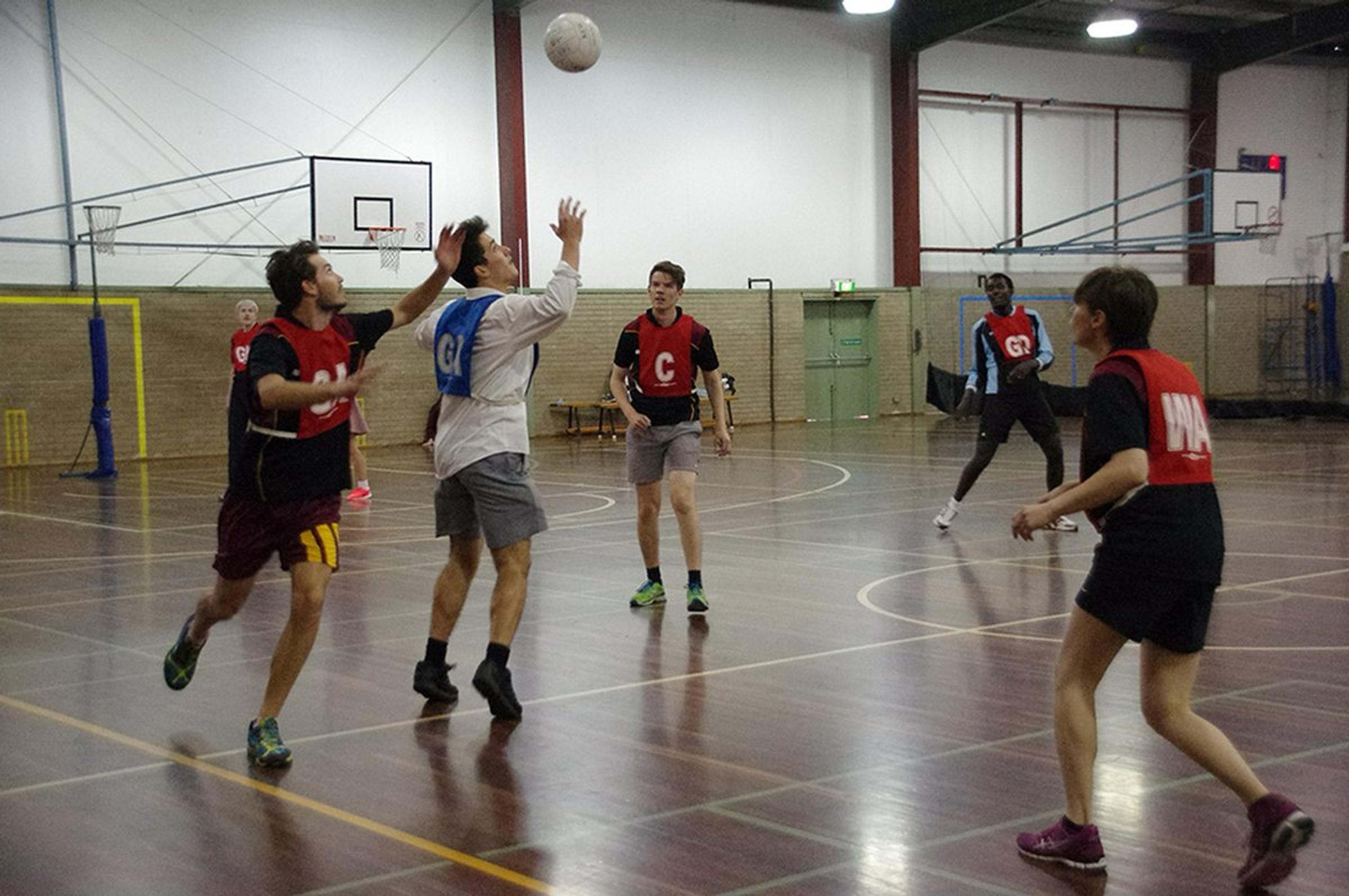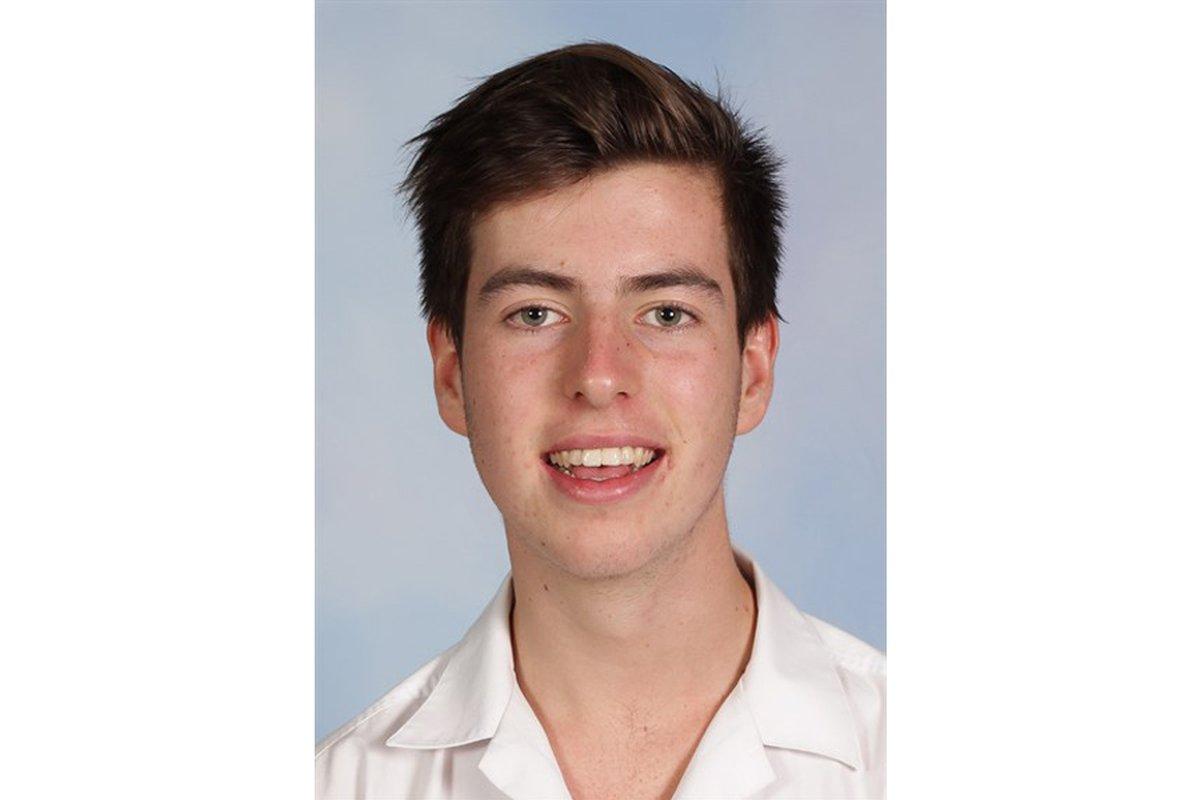NETBALL SUCCESS

Dan The Man
I look down the damp path; yet another miserable Melbourne day. I can see a figure in the distance. From afar he looks smallish in size, but as he approaches me I realise that I’m facing a 180 cm, kind faced, friendly teenager. On a 9 degree day he wears shorts and a tank top, with what looks like netball cross-trainer runners. I shake hands with the giant. Of course I know the boy, I grew up with him and have watched him grow, mature and inspire. I follow him into a suburban house, warm and comfortable; I sit down with a freshly poured peppermint tea. He sits opposite me; it’s another rainy day outside and I notice the heaters are pumping out a murmur of calm warm heat. He offers me a bite to eat, but I politely decline. What I am interested in is this teenager’s story; his past, present and future.
I proceed to ask Dan how life has changed four years after the controversial article published in 2012, his face on the front page of the Herald Sun. He’s the 180 cm netball enthusiast representing equality. I ask him what he believes equality actually is. “No one should be discriminated against for any sport or activity based on their gender,” he responds. With a look of disappointment on his face, he states, “People are too narrow minded to see that they are not acting on the values that they claim to be. They are in fact doing more harm than good.”
To be accurate, I told Danny that the written definition of equality is to be equal or essentially equivalent. Danny Loats allowed us to question the relevance of equality in our society and how discrimination has affected the many components of Australian life. He is an ambassador for male inclusion in sport, and continues to inspire many male adolescents aspiring to be included in sport and treated fairly.
The article released in 2012 on the front page of the Herald Sun discussed the issue of male discrimination and inclusion in netball and across all sports. Danny told the Herald Sun in 2012that he was the only player of more than 800, not allowed to take part against the Diamond Creek Netball Force. “It’s sort of sad because everyone else could play but me,” he said. His dad Greg Loats said Danny was the first allowed to try out for the state selection in his age group. There were few alternatives for boys playing at Danny’s level except to join girls’ teams, he said in 2012. “It’s all about boys having the same opportunities as girls to play netball,” Mr Loats said. Danny’s family wanted Netball Victoria to change its policy so that boys could be included.
Four years later in 2015, I ask Danny if he would have approached the situation any differently. After a few minutes of recollection Danny said that, “he would absolutely not have approached the situation differently,” and that from a grass roots perspective he thinks that he has made a personal difference. From 2013-2014 Danny was in the Australian under 17 boys netball team. He toured New Zealand and played for the Victorian Cyclones mens and mixed netball under 17s. Currently he is playing casual netball once a week.
On a side note, I asked Danny if he thought that there was a word for males that corresponds with the word ‘feminism’ for females. “I have been thinking about this question quite a lot. I think that a lot of people only know feminism as the perspective of those who are almost the opposite of equal, who don’t treat males fairly, who are biased for whatever reasons. Some people believe that feminism is counter sexism, I disagree. All these different groups are fighting for equality, I believe that we can eventually fulfill that goal.”
I asked him if he believed that the article had made a large impact on society and its inclusion barriers. Remarkably he said, “No, the international netball federation advertises netball as a game for women and girls. Unfortunately it still does not encourage male participation in the sport.”
I asked Danny what he loves about netball so much, and how his passion for the sport is so driven. He said he likes the Australian culture around netball. “It is, ironically, inclusive, people come together and we can all play a fun sport. I like that fact that in boys netball there is a nice bind between physical contact and physical aggression; there is a line between aggression and contesting.”
I asked Danny if there was a career path he was looking to follow in his life. He goes into deep thought for a few minutes and then rolls his eyes as if he has been asked this question a million times before, “I don’t have any idea at this stage what I want to do, and it will probably change just like it has been doing for the past 10 years. I just want to follow whatever instincts I have whenever I have them. Who knows what’s going to happen in the next 20 years. I just want to have the opportunity to do it if that’s what I want to do.”
After finishing my calming peppermint tea I asked Danny if there was anything more he wanted to say before I had to re-enter the cold streets of Melbourne’s suburbia. He wanted to state on the record that he knew was lucky with the way he developed in netball. I asked him how the article and ‘media spotlight’ affected his identity after all these years. After he sheepishly giggled at the question he said that it definitely has impacted on his identity and his sense of morality. “I am more tolerant and accepting of people in the spot light of the media. I have a better understanding of what it feels like to be an outsider.”
At the close of the hour and a half interview Danny finished by saying that he knows we don’t have much choice with how things turn out, but by using the amount of choice that we do have to our advantage; we can challenge something we don’t think is right, and help to make a difference.
Lucinda Briant
Year 10 Journalism

